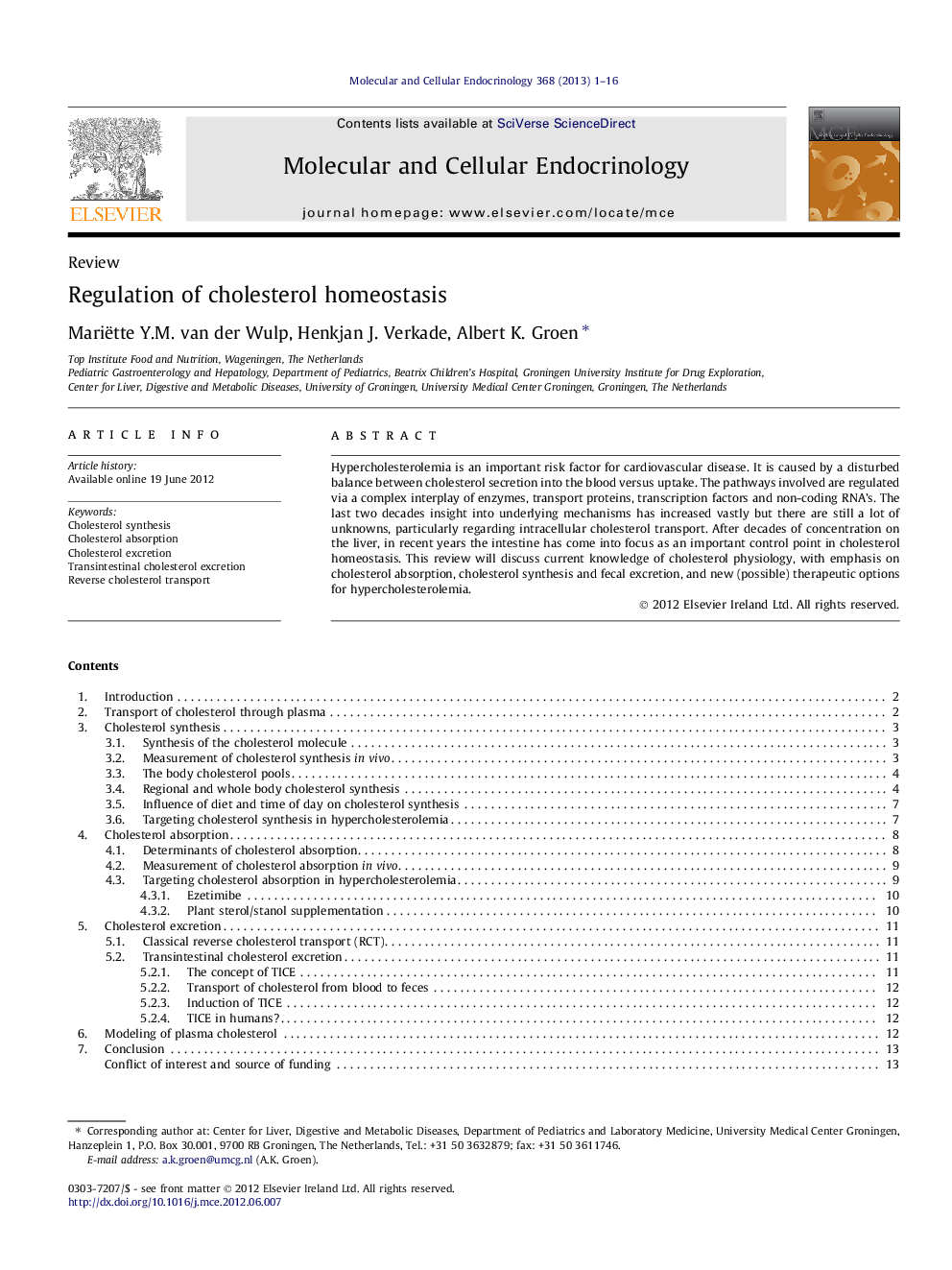| Article ID | Journal | Published Year | Pages | File Type |
|---|---|---|---|---|
| 2196177 | Molecular and Cellular Endocrinology | 2013 | 16 Pages |
Hypercholesterolemia is an important risk factor for cardiovascular disease. It is caused by a disturbed balance between cholesterol secretion into the blood versus uptake. The pathways involved are regulated via a complex interplay of enzymes, transport proteins, transcription factors and non-coding RNA’s. The last two decades insight into underlying mechanisms has increased vastly but there are still a lot of unknowns, particularly regarding intracellular cholesterol transport. After decades of concentration on the liver, in recent years the intestine has come into focus as an important control point in cholesterol homeostasis. This review will discuss current knowledge of cholesterol physiology, with emphasis on cholesterol absorption, cholesterol synthesis and fecal excretion, and new (possible) therapeutic options for hypercholesterolemia.
► Plasma cholesterol can be decreased by inhibition of cholesterol synthesis and/or absorption. ► The intestine is a key player in cholesterol homeostasis. ► Transintestinal cholesterol excretion plays a major role in cholesterol disposal.
